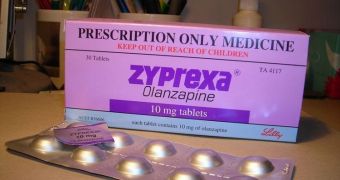Yesterday, October 24, the US Food and Drug Administration (FDA) finally sanctioned the use of the generic version of two brand drugs for the treatment of bipolar disorder (BPD) and schizophrenia.
The newly-approved drugs are the generic versions of Zyprexa (olanzapine tablets) and Zyprexa Zydus (olanzapine orally disintegrating tablets), the FDA explains. This chemical shows great promise in treating these mental disorders, but thus far only the expensive brand versions have been available.
Both conditions display a variety of common symptoms, which clinicians usually treat by administering olanzapine, the active compound in both brand chemicals. The stuff has powerful antipsychotic effects, helping lower the intensity of some of the symptoms.
Analysts with the FDA praised the new decision, saying that there is a lot of credit to be given to the agency for making an effective chemical available to the public in a cheaper form. BPD and schizophrenia affect tens of millions of people worldwide.
“The approval of generic olanzapine offers greater access to a widely used treatment for mental illnesses,” explains the FDA Center for Drug Evaluation and Research (CDER) Office of Pharmaceutical Science deputy director, Keith Webber, PhD.
“Having affordable treatment options is good for patients with long-term illnesses that must be carefully managed,” the official goes on to say. He adds however that all olanzapine boxes will be accompanied by a Medication Guide.
The leaflet will list all the risks and adverse reactions people will subject themselves to when using the drug. Similar labels are required for most drugs on the market today. The most serious danger the drug poses is for old people suffering from psychosis, who are at an increased risk of death.
“Schizophrenia is a chronic, severe, and disabling brain disorder. About 1 percent of Americans have this illness. Symptoms people with schizophrenia have include: hearing voices, believing other people are reading their minds or controlling thoughts, and being suspicious or withdrawn,” an FDA press release reads.
“Bipolar disorder, also known as manic-depressive illness, is a brain disorder that causes unusual shifts in mood, energy, activity levels, and the ability to carry out day-to-day tasks,” the document adds.
“The symptoms of bipolar disorder include alternating periods of depression and high or irritable mood, increased activity and restlessness, racing thoughts, talking fast, impulsive behavior, and a decreased need for sleep,” the FDA concludes in its press release.

 14 DAY TRIAL //
14 DAY TRIAL //